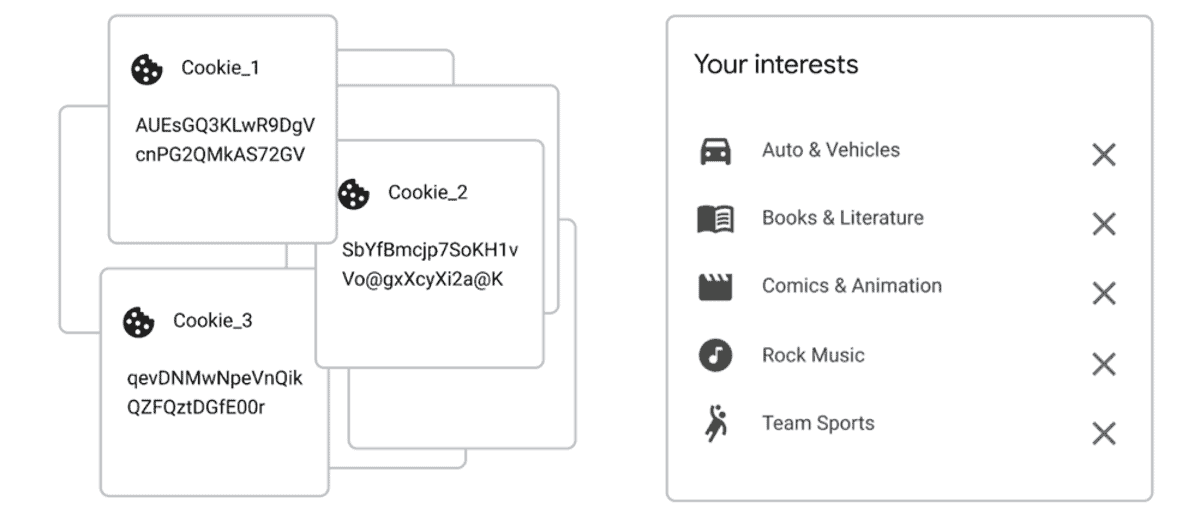Google announced the new Topics API for its Privacy Sandbox project on January 25, 2022, which replaces the controversial FLoC project.
When Google announced FLoC, Federated Learning of Cohorts, back in mid-2021, it revealed a plan to shift online advertising from user tracking to group tracking. Users would no longer be tracked individually through the use of cookies, but would join cohorts based on their interests. Sites would gain access to these interests and advertisement could be displayed based on that.
A FLoC-supporting program such as Google Chrome would analyze the browsing history of the user, join a cohort based on the data and store the information locally.
Companies like DuckDuckGo, Brave or Vivaldi rejected FLoC for a number of reasons, including that cohort information could become a strong fingerprinting identifier, as cohorts consisted of a few thousand users. Other objections included letting Google determine what it considered sensitive information, which the company wanted to exclude from being used for advertising purposes, and informing any site about interests, even if sites were never visited in the past.
Update: Brave published a statement on its site stating that Topics does not address all of the company's points of criticism. In particular, it is still Google that is deciding what is sensitive and as such excluded from being used for advertising purposes. Topics limits the exposure of a user's interests to sites visited in the past, and the advertisers that were loaded on those sites. The limitation benefits large advertisers, including Google, and puts smaller advertisers at a disadvantage.
FLoC, Privacy Sandbox, and the Topics API do not improve privacy; rather, they’re proposals to make the least private browser slightly less bad. They’re an incomplete and insufficient effort by Google to catch up with other browsers that offer real privacy protections (and that have done so for years).
End of Update
The announcement by Vinay Goel, Product Director Privacy Sandbox and Chrome at Google, confirms that Google dropped FLoC from its Privacy Sandbox program. The company plans to replace it with the Topics API, which Goel introduces in the blog post on The Keyword blog.
Topics is based around the idea of associating topics with a user's browsing behavior. Programs like Chrome will still analyze the browsing history to determine these topics, but users won't be assigned to cohorts anymore.
A "handful" of topics that represent a user's top interests are determined and kept for three weeks. Old topics are deleted after that time while new topics added, based on the user's browsing. The entire process happens locally according to Google.
When a user visits a site, the site is informed about three of the available topics, one from each week of browsing. The site and its advertising partners may use the information to display advertisement to the user.
Google plans to introduce controls that make the entire process transparent for the user; this includes options to see topics, remove them, or even disable the feature entirely. Topics won't include sensitive topics such as gender or race according to Google.
Additional information about Topics is available on the Privacy Sandbox website and on GitHub.
Closing Words
With more and more companies dropping support for FLoC, it was clear that Google had to do something. Topics replaces FLoC, and it addresses some of the major concerns levelled against FLoC. Whether Google is more successful in convincing other browser makers and companies to include Topics in their products, or in the case of Chromium-based browsers, not disable it, remains to be seen.
- scarabou and Karlston
-

 2
2



Recommended Comments
There are no comments to display.
Join the conversation
You can post now and register later. If you have an account, sign in now to post with your account.
Note: Your post will require moderator approval before it will be visible.